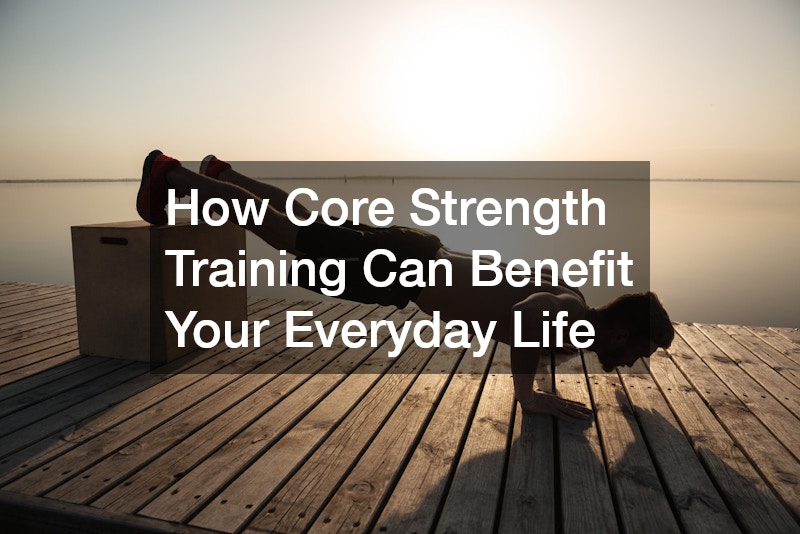
How to Get Tight Muscles to Relax

We all know just how painful it can be to have tight muscles. Whether it’s from an injury, stress, or poor posture, tight muscles can cause pain and severely limit our quality of life. Over time, chronic pain and muscle tension can lead you to seek the help of disability services. Fortunately, tight muscles can easily be fixed with certain simple procedures and lifestyle changes. After a long day of work, you can use these tips if you’re looking for how to get tight muscles to relax.
1. Visit a Med Spa
One of the easiest ways to get rid of muscle tension and relax is to visit some med spas near you! Med spas can provide many services that can actually help reduce muscle tension around the facial areas. These include microneedling, Botox, and laser skin resurfacing. These treatments do much more than improve your aesthetics. In fact, Botox has long been used as a treatment for migraine, which can be caused by stress and muscle tension. In addition, visiting a med spa can be a relaxing experience, which can help you reduce muscle tension all over your body.
2. Visit a Regular Spa

Regular spas are also a great way to get rid of muscle tension. Regular spas can provide services including Shiatsu massages, sauna treatments, jet baths, mud baths, and body wraps. These are all luxurious treatments that can help you feel rejuvenated, relaxed, and loosen up any tight muscles caused by muscle tension. You can even visit a spa if you’re looking for a way to relax in between the week!
3. Visit Your Doctor
Muscle tension can be caused for a variety of reasons. Some of these reasons, such as stress and poor posture, can be easily treated with at-home remedies. Other times, however, muscle tension can be caused due to underlying illnesses. This can include being dehydrated, fibromyalgia, chronic fatigue syndrome, and certain infections. If your muscle tension is accompanied by other severe symptoms, such as muscle strains and sprains, fever, sickness, or any other symptoms, it’s best to seek the advice of your doctor. They can provide you with a treatment plan and medication to relieve your muscle tension, such as extra-strength muscle relaxers.
4. Use Non-Steroidal Anti-Inflammatory Medication
One of the most common medications your doctor will advise you to use for tight muscles is a medication known as NSAIDs, or non-steroidal anti-inflammatory medication. Only your doctor can let you know if it’s safe for you to take this medication, and how long it is safe to consume NSAIDs. They are usually only used for a short period of time. If you are pregnant or have other underlying illnesses, consult with your physician before you take NSAIDs. These are, however, readily available to use over the counter. If you’re wondering how to get tight muscles to relax for the short term, NSAIDs are a great option. They are available through brand names such as Advil and Aleve and are also known as Ibuprofen.
5. Apply Hot Patches
If you’re wondering how to get tight muscles to relax without the use of medications, consider using hot patches on your tight muscles. The heat from the patches will allow your muscles to relax and reduce inflammation. Some common places to apply hot patches include behind your neck, in your upper back, and on your lower back. All of these areas can be prone to muscle tension. Make sure to read the instructions along with your hot patches carefully. They can have important information on when it’s okay to use and not use patches, such as on previously broken skin.
6. Take a Hot Shower

If you don’t want to use hot patches and are wondering how to get tight muscles to relax after work or a long day, take a hot shower! The steam and heat from a hot shower can not only help you relax but also work in much the same way as a hot patch. The heat from the shower can soothe sore muscles, and it can be especially useful if you’re an athlete recovering from a long workout. The heat allows lactic acid that builds up in the muscles to break down, which prevents them from becoming sore and tight the next day.
7. Fix Your Posture
Unfortunately, many Americans now spend lots of time at their desk and in front of a computer screen. This can lead to poor posture, headaches, and cervical neuralgia. This is a condition in which the muscles of your upper back become tight and inflamed. They then begin to compress the optic nerve that runs behind the neck, leading to symptoms such as dizziness, headaches, and pain behind the eyes. If you’re wondering how to get tight muscles to relax in your upper back and prevent cervical neuralgia, start by first changing your posture. It’s important to sit at an appropriate distance from your computer, and not stare down at your screen for too long.
8. Invest In Ergonomic Furniture
Another great way to fix muscle tension and improve your posture is to invest in ergonomic furniture. Ergonomic furniture adapts to the natural curves of your body, allowing you to sit comfortably for hours on end. They offer support to ensure you don’t have to undergo the effects of muscle tension and muscle soreness. Ergonomic furniture can be used at the office or at home. Ask your office to invest in ergonomic office chairs if they can.
9. Visit a Chiropractor
For those wondering how to get tight muscles to relax and also improve their overall well-being, chiropractors can be a huge help. Through chiropractic adjustment, manual adjustments, and procedures such as spinal decompression can help relieve pain and get muscles to relax. Many times, muscle tension isn’t the only symptom of stress and poor posture. Underlying issues such as spinal misalignments, herniated discs, and sciatica can cause pain and lead to muscle tension. A chiropractic doctor can help diagnose and treat all of these underlying issues.
10. Exercise Regularly

Regular exercise is one of the most effective ways to improve health and overall wellness. It is also one of the best ways to reduce stress that can lead to muscle tension. Regular exercise gets rid of cortisol that can build up in the body due to stress. It can also boost feel-good chemicals in the brain known as endorphins to help you relax. Exercising regularly also promotes blood flow to your muscles, allowing your muscles to relax and reduce inflammation.
11. Practice Yoga
Yoga is an excellent way to stretch muscles and become more flexible. Yoga instructors have one of the best interventional pain jobs, as they can help not only reduce pain and muscle tension but also promote balance and relaxation. Yoga incorporates not only muscle stretches but also breathing and meditation techniques. Yoga can help strengthen the neural mind and body connections so that you feel more grounded and relaxed during the day. It’s best to start off slow and get the help of online tutorials or a professional yoga instructor. Some stretches can be difficult, and you don’t want to risk any injuries.
12. Seek Help From a Specialist
Sometimes, muscle tension can be a result of an accident or other injury. For instance, you might have suffered from whiplash due to a car accident. Whiplash can be the cause of upper back, neck pain, and muscle tension. If you’re wondering how to get tight muscles to relax after an accident, you might have to get help from a specialist. If you cannot afford to see a specialist, contact a personal injury attorney so you can get a settlement and pay for medical expenses related to your injury.
13. Do Muscle Stretches At Home
You can always do simple muscle stretches at home when you don’t have time to do full-on yoga or get a professional massage. If you have muscle tension, there are many stretches you can do at home such as butterfly stretches, hamstring stretches, triceps stretches, and more. Make sure that you’re doing stretches appropriate to your strength level. There are exercises available for seniors, young adults, and even children. Always consult a medical professional before you begin any sort of stretching routine.
14. Focus on Muscle Strengthening Exercises
If you’ve suffered from an injury, the healing process afterward can be extremely painful. Even after you get help from a lawyer, doctor, and physical therapist, you might still be suffering from the effects of muscle immobility and muscle tension. To help you recover from injuries and reduce muscle inflammation, focus on muscle strengthening exercises. These exercises can promote blood flow, natural healing, and circulation of the muscles. Your physical therapist will give you a list of exercises to do at home to promote muscle strength. It’s important to continue to do these exercises until told otherwise. For instance, if you suffered from an ankle sprain or strain, not only will you experience muscle tension, but you will also experience a loss of strength in your ankle. This can leave you susceptible to reinjury.
15. Reduce Stress

One of the biggest causes of muscle tension is stress throughout our day. Unfortunately, 77% of people report having physical and emotional effects from stress. For those wondering how to get tight muscles to relax, start with relaxation and stress-reduction techniques. There are many stress reduction methods that you can utilize, such as breathing and relaxation techniques, meditation, exercise, and prioritizing. You can also reduce stress through stress-reduction workbooks, and even through the help of a therapist.
16. Eat a Healthy Diet
Did you know that some foods can actually promote inflammation and worsen muscle tension? These include foods such as sugar, processed sugar and candy, carbs such as rice and potatoes, trans fats and saturated fats. If you’ve felt muscle tightness and don’t have the best diet, it’s important to incorporate anti-inflammatory foods such as omega-3 fatty acids that can be found in fish. Load up on good fats such as those found in coconut oil and avocados. Turmeric is also a powerful anti-inflammatory food you can use to help you reduce muscle tension and inflammation.
17. Rest
Perhaps one of the best things you can do to relax and reduce muscle tension is to rest. Take some time off work if you feel you’re balancing too much, and if you have sick time to spare. Taking a day to rest can be very helpful to your mental health and well-being. Whether that means laying in bed all day and just browsing your internet, going on a shopping day, or just sleeping in. Rest and sleep are excellent ways to promote natural healing in your body, help you feel recharged and re-energized.
18. Allow Your Body to Recover From Injuries
Similar to regular rest, it’s best to let your body recover from any injuries causing your muscle tension. Whether that’s a muscle strain or sprain, allowing your body to recover from injuries is the best way to minimize the risk of re-injury and allow the muscles to relax. If you’re an avid runner but are experiencing muscle tension in your hamstrings and heels, cut back on your running if it is causing more pain. Any signs of pain is your body telling you that it needs to rest before you can begin to exercise again.
19. Visit An Orthodontist
Muscle tension can occur in any part of the body, including the facial and jaw area. This is known as TMJ disorder, or temporomandibular disorder. If you’re wondering how to get tight muscles to relax in the facial area, you can visit an orthodontist. They can help you feel some much-needed pain relief through jaw exercises and jaw muscle stretches.
20. Do Swimming Exercises
Swimming is one of the best ways to not only relax your muscles, but it’s also a great way to exercise if you have muscle tension and sore joints. Just like regular exercise, regular swimming can also be a great form of cardiovascular exercise. You can even set up a sporty pool in your backyard by installing a swimming pool starting platform. Or, you can install a mini swimming pool to do your exercises daily.
Muscle tension can lead to pain and limit your range of motion. However, you can easily fix your issues of muscle tension through simple exercises and stretches at home, as well as lifestyle changes. You don’t have to pawn off that beautiful diamond ring of yours for treatment and healing either!


